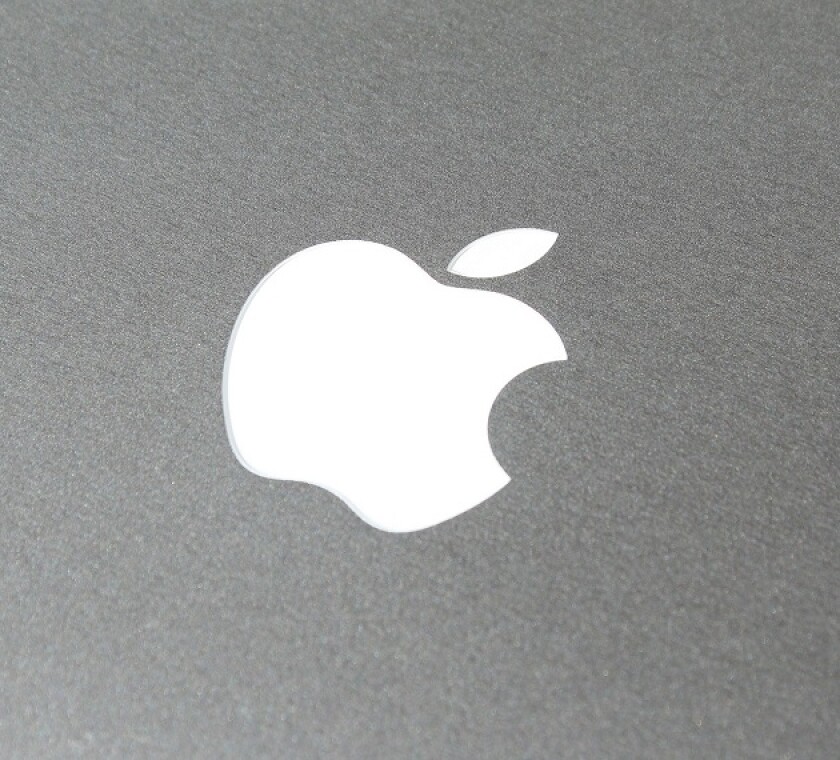After years of wrangling, Apple and the Irish government hope to overturn the EU’s controversial 2016 decision to recoup a tax bill of €13 billion ($14.4 billion) plus €1.2 billion in interest. The stakes are high if the EU’s lower court rules against the tech enterprise.
The European General Court (EGC) opened proceedings on the state aid case on September 17 and heard the company and the Irish authorities present their arguments against the European Commission.
Daniel Beard, a barrister from Monckton Chambers representing Apple, told the Luxembourg-based court: “The commission contends that essentially all of Apple’s profits from all of its sales outside the Americas must be attributed to two branches in Ireland.”
“The branches’ activities did not involve creating, developing or managing those rights,” Beard said. “The primary line defies reality and common sense.”
The US tech company has operated in European markets through Ireland for decades. The company first set up its Irish operation in 1980 and today has more than 6,000 employees in the country, but the operation had a dual structure with a head office running parallel to the manufacturing plant.
“The activities of these two branches in Ireland simply could not be responsible for generating almost all of Apple’s profits outside the Americas,” Beard argued.
The Irish government approved Apple’s structure to route profits from European sales through its Irish subsidiary to its head office located “nowhere”. This is how the company recorded profits of $22 billion in 2011 and paid just €50 million in tax in Ireland, according to US Senate public hearings.
It was the government’s decision to grant these tax rulings that the EU claimed counted as state aid. This is why one tax director at a European retail business described the case as a dispute over “economic reality”.
“The tax rulings meant the sales and profits of the company were booked in Ireland and allocated to the non-resident head office,” the tax director told ITR. “But the EU found the office did not have the necessary operational capacity to justify this arrangement.”
The European Commission argued that Apple’s effective rate in Ireland fell to an all-time low of 0.005% in 2014, but the company maintains that the rate is misleading because it includes Apple’s global revenue and the global business effective rate was 24.6%.
Apple’s unusual position
There is more to this case than just the facts of the structure. As a small open economy, Ireland has long positioned itself as the best entry-point into Europe for US businesses and has designed its tax system to attract foreign direct investment (FDI).
The Irish government has more concerns about the implications of the decision than just the revenue implications. “It undermines legal certainty if state aid measures are used to retrofit changes to national law,” Beard said.
When the decision was first issued Apple CEO Tim Cook was quick to fire back in an open letter. “The European Commission has tried to rewrite Apple’s history in Europe, to ignore Ireland’s tax laws and, in doing so, to disrupt the international tax system,” Cook said.
He took aim at the finding that the Irish government had granted the company illegal state aid. “This claim has no basis in fact or in law,” Cook said. “We now find ourselves in the unusual position of being ordered to retroactively pay additional taxes to a government that says we don’t owe them any more than we’ve already paid.”
“This would strike a devastating blow to the sovereignty of EU member states over their own tax matters, and to the principle of certainty of law in Europe,” the chief executive said. “We are confident the commission’s order will be reversed.”
Since the 2016 decision, Apple has restructured its Irish operations and the country’s government has worked to dismantle the double Irish structure and close the loopholes in the corporate tax regime. The tax system is still one of the most competitive in Europe, though this could change.
One tax lawyer, who advises the Irish government, suggested that Irish Revenue has been more reluctant to grant tax rulings because of the Apple case.
“I don’t mean any disrespect to the Irish tax authorities, but I think they are running around like headless chickens,” the lawyer said. “They’re afraid to grant tax rulings because of the state aid threat.”
At the same time, the case has set off a wider debate in Ireland. Many governments would jump at the chance to collect more than €14 billion in extra tax revenue, but the Irish government wants to defend its fiscal strategy against critics – who claim the country is a tax haven.
“Ireland has, since the 1950s, decided that an open economy was a better position for a small country located on the westernmost part of Europe,” the Irish lawyer told ITR. “The next stop is America.”
“We’re like the weather station for Europe monitoring the Atlantic,” the lawyer continued. “But people forget when they look at the Apple case that Ireland is a real country with real people.”
The Irish authorities would prefer to cash out for legal fees and fight the court decision for several years. The cost of the legal fees has already exceeded €7 million and the dispute could drag on for a decade.
“The Left is saying the government isn’t collecting enough taxes and the Right is saying they aren’t fostering a good environment for investment and job creation,” the lawyer said. “The fundamental question is: How should we go about designing a fair and equitable tax system?”
In the meantime, the Irish government maintains it did not give favourable tax treatment to Apple and the full amount of taxes were paid, so no state aid was provided. The ECG could decide otherwise and this appeal could go to the European Court of Justice.











